-
Search -
Accessibility -
Members Login








International Council of Voluntary Agencies
Focus areas
Founded in 1962, International Council of Voluntary Agencies (ICVA) is a global network of over 160 non- governmental organizations (NGOs) active in 160 countries, operating at global, regional, national and local levels, whose mission is to make humanitarian action more principled and effective by working collectively and independently to influence policy and practice.
ICVA members currently include humanitarian NGOs, large and small, national and international, networks and consortiums, secular and faith-based, with an estimated income of over USD 20 billion. Almost 50% of our members have their HQ in the global south. Through our members we have an outreach of over 8000 organizations. In addition to membership, ICVA has developed several strong and diverse partnerships at local, national, regional and global levels.
The vision of ICVA is a world in which crises-affected populations are effectively protected, assisted, and enabled to rebuild their lives and livelihoods with dignity.
The mission of ICVA is to make humanitarian action more principled and effective by working collectively and independently to influence policy and practice.
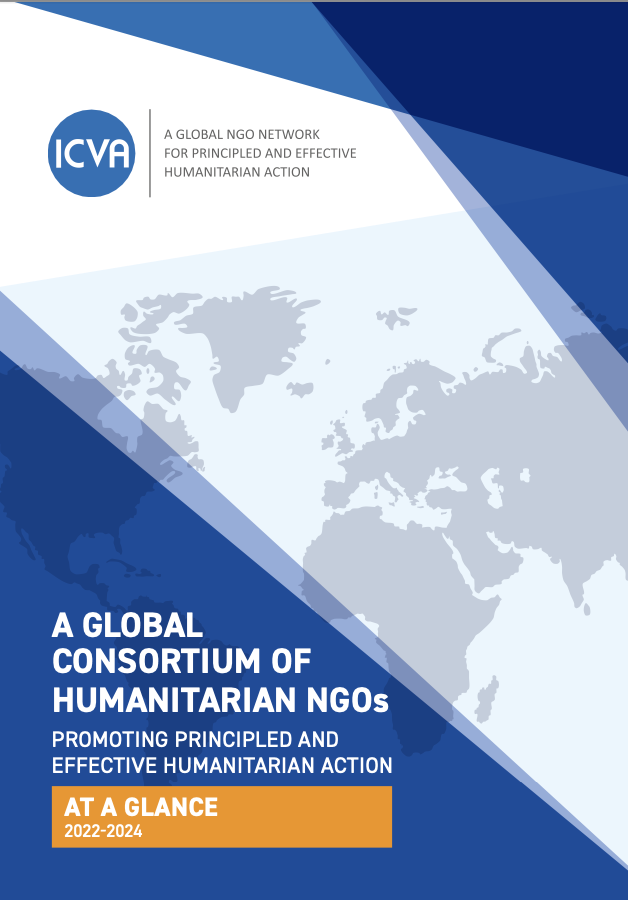
This poster and brochure provides a brief outline of the structure and key priority areas of ICVA – a global network of 160+ humanitarian NGOs.
ICVA is based in Geneva, giving proximity to global humanitarian debates and decision making. ICVA complements this presence in Geneva through regional representation in Africa, Asia and the Pacific, the Middle East and North Africa (MENA), and Latin America.
The regional hubs enable ICVA to expand its engagement with NGOs, NGO fora, and humanitarian actors, providing an important link between global and regional perspectives and ensuring a connection to the operational realities of its members.
ICVA connects the voices of its members in order to:
We do this through our focus areas:
The ICVA 2030 Strategy sets the framework for the direction and focus of ICVA’s work from 2022-2030, as we evolve and transform our network. Rooting us more deeply in our mission of principled and effective humanitarian action, this strategy sets our collective values, our ways of working and our aspirational transformations. We will continue to work on our focus areas to best serve our members and the sector as a whole. Our added value is rooted in our work explaining & analysing, convening, brokering, influencing & advocating, supporting and collaborating.
This strategy was adopted members at the 18th General Assembly in May 2021.
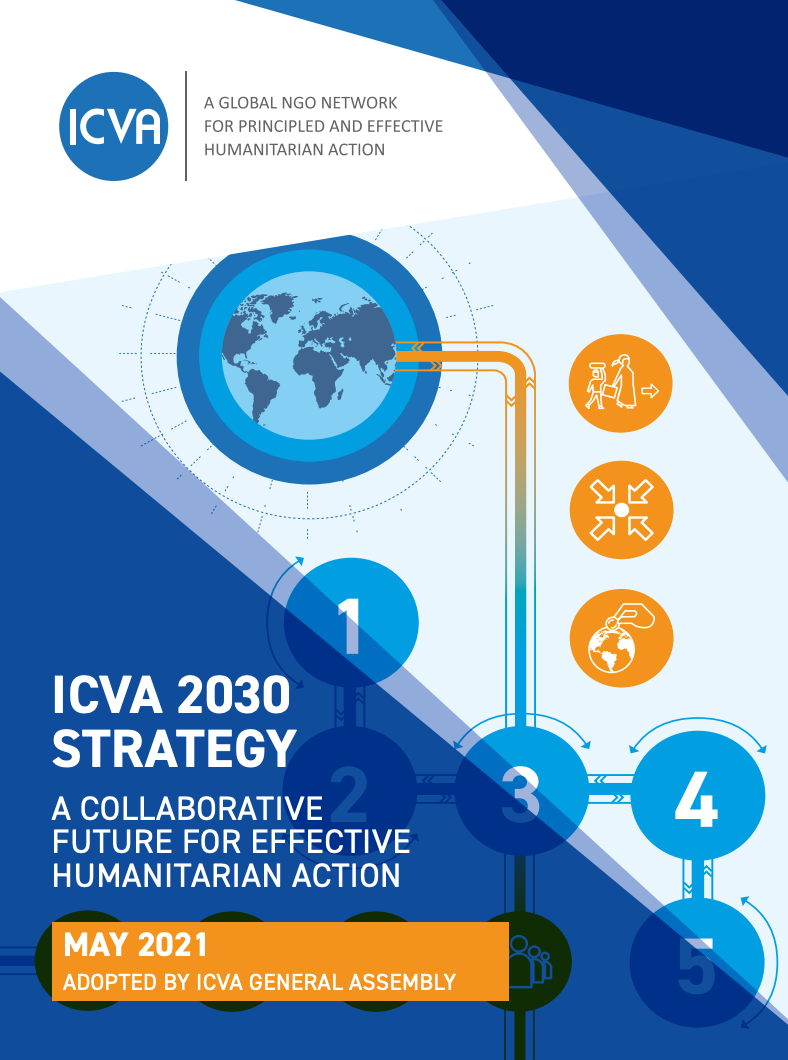
This document sets the framework for the direction and focus of ICVA’s work from 2022-2030, as we evolve and transform our network. Rooting us more deeply in our mission of principled and effective humanitarian action, this strategy sets our collective values, our ways of working and our aspirational transformations. We will continue to work on focus areas which to best serve our members and the sector as a whole. Our added value is rooted in our work explaining & analysing, convening, brokering, influencing & advocating, supporting and collaborating.
This strategy was adopted by members at the 18th General Assembly in May 2021.
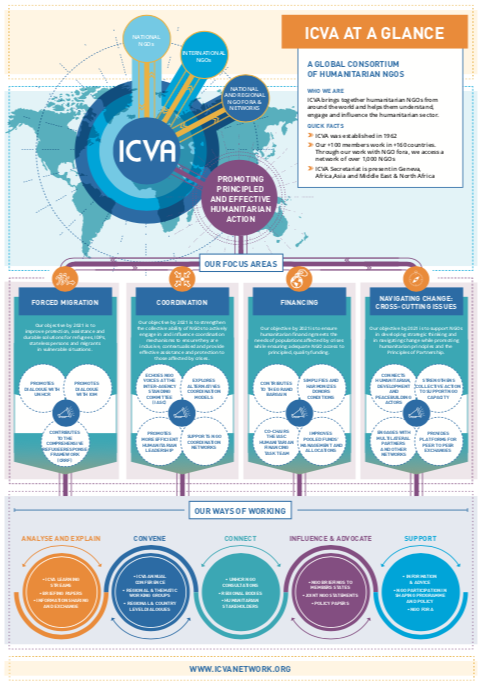
This is the ICVA poster and brochure for better understanding of the 2019-2021 strategic period.
The Strategic priorities 2022-2024 were adopted by members at the 18th General Assembly in May 2021.
These priorities are drawn from the ICVA 2030 strategic vision, providing a more specific focus for the period 2022-2024. On the basis of these priorities, the Secretariat developed a three-year plan for ICVA Board approval in November 2021. The plan includes specific choices on content of ICVA’s work, enabling strategies, the resource planning and requirements and a set of performance indicators.
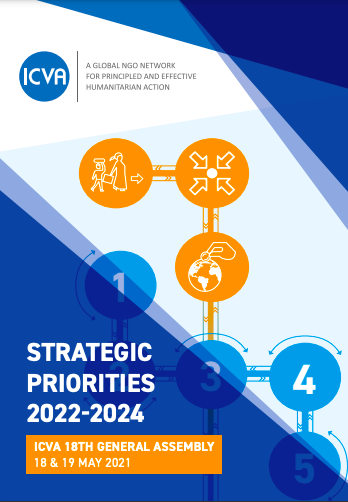
The ICVA 2030 strategic framework will be implemented by a series of three-year and annual plans guided by strategic priorities derived from the overarching vision. The 18th General Assembly in May 2021 approved the Strategic Priorities proposed by the Board. These priorities are drawn from the 2030 strategic vision, providing a more specific focus for the period 2022-2024.
Our annual report shows how ICVA is making progress towards our strategic objectives.
We also publish our audited accounts, explaining where our income comes from, and how we’ve spent it. They are published annually.
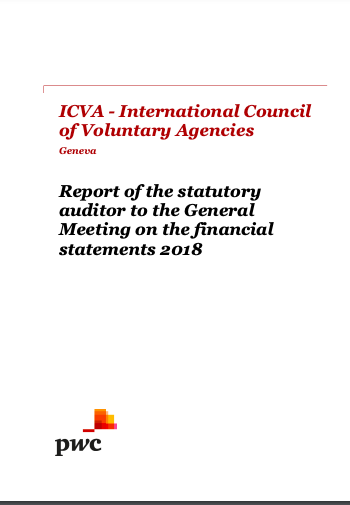
Every three years, we conduct an external review to assess the impact of ICVA’s work and strategy. The Impact Study reports are based on the findings of the mid-strategy reports.
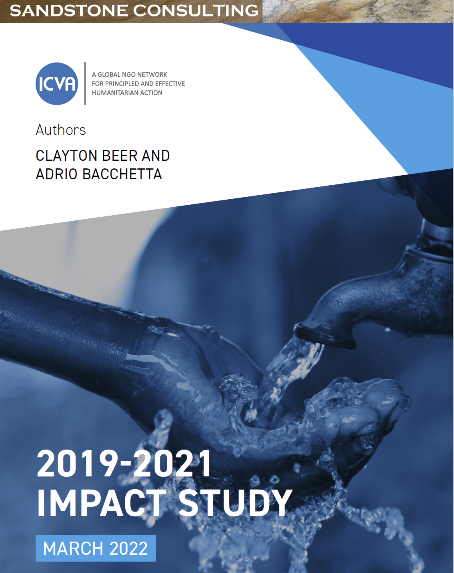
Conducted by Sandstone Consulting, this external evaluation takes stock of the impact ICVA has achieved over the course of its 2019-2021 Strategy. The key question being investigated is “What has been the impact of ICVA`s efforts in influencing and amplifying NGO perspectives in humanitarian dialogue and policies across each of the four selected focus areas and other issues arising for the period 2019-2021? The methodology comprised a document review, interviews with selected stakeholders, and a review of the substantial existing data from ICVA’s recent 2030 strategy consultations with members. This report builds on the findings of the Mid Strategy Report by the same consultants.
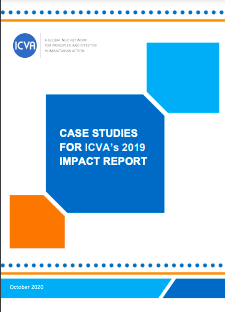
5 case studies showing the diversity of ICVA’s ways of working globally and regionally were included in the 2019-2020 mid stratetgy impact study report.
4 case studies were included in the 2019-2021 impact study report.
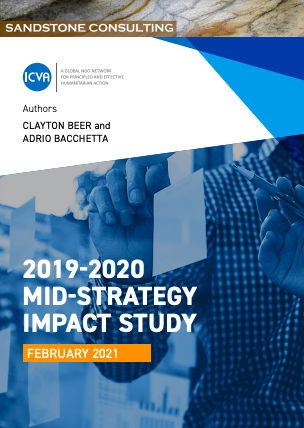
This study took stock of the impact ICVA has achieved just over midway through its 2019-2021 Strategy. The key question investigated is “What has been the impact of ICVA’s efforts in influencing and amplifying NGO perspectives in humanitarian dialogue and policies across each of the four selected focus areas and other issues arising for the period 2019-2020?”
The methodology comprised a document review, interviews with selected stakeholders, and a review of the substantial existing data from ICVA’s recent 2030 consultations with members
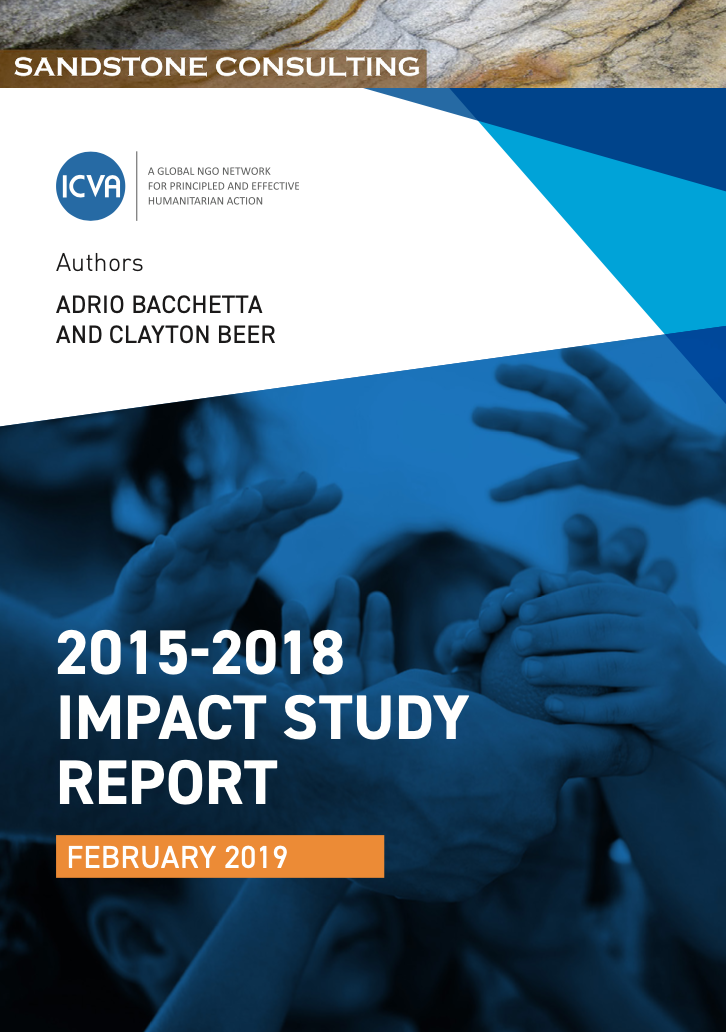
This impact evaluation refers to ICVA’s 2015-2018 strategy. The report has been structured to align with how ICVA worked in practice, while staying true to the selected focus areas; Forced Displacement, Humanitarian Partnerships, Humanitarian Financing, Humanitarian Coordination. The methodology comprised interviews and document reviews, also drawing from interim impact studies conducted previously. The main findings are presented under the main work areas used to frame the key evaluation questions.
Our committed and diverse Board plays a crucial role in the governance of ICVA. They ensure that the interests of our members are well represented and that we are accountable to all our stakeholders. Additionally, they provide leadership and strategic guidance to support the financial and operational stability to advance our mission of making humanitarian action more principled and effective.
In accordance with the ICVA Statues, the Board is composed of 9 elected member agencies, plus two coopted members. The General Assembly elects nine (9) Board members, and from those elected members a Chair is selected.


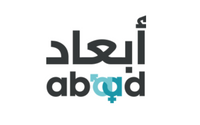
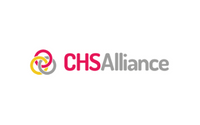
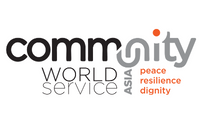

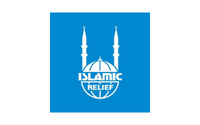
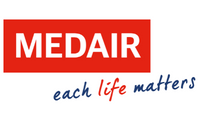
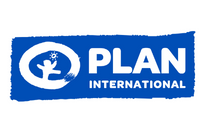
Every three years ICVA’s General Assembly brings ICVA members together to celebrate the network and agree on a long-term strategy and strategic priorities for the following three years. It is also the time when the General Assembly elects a new Board and Chair, and discusses other business matters, such as amending the ICVA Statutes.
The 19th General Assembly was held on 20 March, with the participation of 77 member organizations in person and over 100 casting votes online. The members adopted the Strategic Priorities 2025-2027, approved amendments to the ICVA Statutes, and reaffirmed their commitment to humanitarian principles and standards. Notably, a new Board was elected with Ms Nimo Hassan of the Somali NGO Consortium elected as the ICVA Chair.
For more information about the 19th General Assembly see https://www.icvanetwork.org/events/19th-icva-general-assembly/
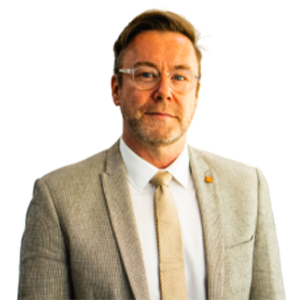
Jamie has a background spanning over 16 years in aid programming, strategic development, NGO coordination, and policy formation. He joined ICVA in November 2023 after completing his tenure as Country Director in Iraq for the Norwegian Refugee Council (NRC).
Throughout his career, Jamie has held roles across head office, regional, and country levels with various NGOs and the United Nations. He firmly believes that NGOs play a pivotal role in fostering solutions-based approaches to global challenges. With a doctorate from the University of Exeter, Jamie has contributed to research areas on gendered identities in conflict zones, aid accountability and transparency, and post-conflict nationalism.
At ICVA, Jamie brings to the table his expertise in strategic leadership, innovation, effective advocacy, and a steadfast focus on accountability and coordination. His forward-thinking approach and commitment to driving positive change in the humanitarian sector compliments the expertise already inside the ICVA secretariat and its broader membership.
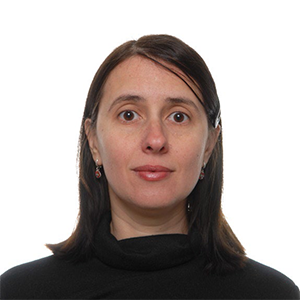
Mirela joined ICVA in 2019 as Director of Policy where she leads a policy team focusing on forced migration, humanitarian financing, and coordination.
As a human rights lawyer from Albania, she has 15 years of professional experience on humanitarian and development issues working for both NGOs and UN Agencies. She worked with UNICEF as advocacy coordinator on the rights of refugee and migrant children in Europe. Prior to UNICEF, Mirela served as global protection adviser for Terre des hommes, covering programmes aiming at preventing child exploitation, trafficking and other forms of violence against children. For few years she provided direct legal services to vulnerable families and Albanian children exploited or living in the streets of Albania and Greece.
She holds an LLM degree and has authored various publications on human rights and migration law.
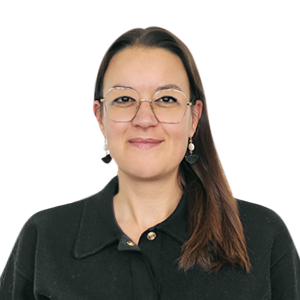
Susan joined ICVA in August 2022 as Chief Operating Officer. She has a range of experience in the private, public and not-for-profit sectors. Susan comes to ICVA from CIVICUS: World Alliance for Citizen Participation where she was the Head of the Geneva office.
Over the last 10 years at CIVICUS, she has held a part programme and part operational management role. Before joining CIVICUS, Susan was a diplomat with the South African government (human rights and humanitarian affairs) and prior to that, she worked for a large public affairs consultancy firm headquartered in Washington DC.
Susan has a BA in Psychology, an honours degree in Political Science and a Masters in International Relations. She has various post-graduate management diplomas and is a published author on various topics. Susan is also a guest lecturer and enjoys teaching.

Davina has extensive experience working in NGOs on issues related to forced displacement, beginning with the British Refugee Council. She also worked with NGOs in MENA where she focused on development and humanitarian interventions.
Prior to joining ICVA, Davina worked for UNHCR in the Division of International Protection where she provided capacity building, policy development, and technical support to States on resettlement and complementary pathways programmes, as well as being the integration focal point. She has also worked with UNHCR in the Southern Africa region focusing on durable solutions.
Davina was a research fellow under the European Commission’s Marie Skłodowska-Curie programme as well as a research consultant. Her research specialised in refugee integration, inclusion, and participatory approaches and she has published on these topics. She holds an MSc in Global Politics and a degree in the Social Sciences.


Loïse has expertise on Forced Displacement with 10 years of experience including in preventing and responding to sexual and gender-based violence in humanitarian settings and particularly in the context of refugee responses in North Africa, South-East Asia & Europe. Loïse’s skills include research, analysis and reporting, capacity building, multi-stakeholders engagement, public speaking and meeting coordination.
She holds a master’s degree in Human Rights with a specialty in Humanitarian Affairs from the University of Strasburg. Recently, she completed a course on Climate Change and Human Mobility from the University for Peace.
Prior to joining ICVA in 2019, she worked with the NGOs International Rescue Committee and France Terre d’Asile as well as with UNHCR.
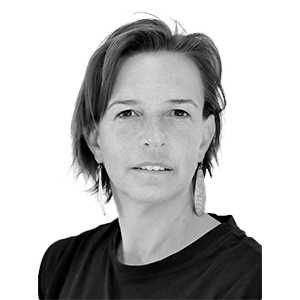
Elise brings over 24 years of experience in the humanitarian sector, including 19 years at the International Federation of Red Cross and Crescent Societies (IFRC) and 5 years as an entrepreneur and consultant specialised in strengthening not for profit organizations. At IFRC she served as General Counsel and Global Director of Policy, Strategy and Knowledge. After a move to Nigeria, she worked in an advisory capacity to strengthen and enhance the funding capacities of the Red Cross Societies in the West Coast of Africa.
She is the co-founder of the Nigeria PLRCAP program providing capacity support to Nigerian NGOs and the author of numerous reviews and studies including on pooled fund mechanisms, scaling of the CHS verification processes, and several pieces related to advancing locally-led action. Elise began her career as a corporate lawyer with the law firm of Coudert Brothers in their New York and Paris offices, specialized in project financing. She holds a Juris Doctorate from New York University School of Law and attended both the Graduate Institute of International Studies in Geneva, Switzerland and St Anselm Colleges in the United States. She is French/American, based currently in Geneva, Switzerland.

Manon joined ICVA in 2022 as Humanitarian Finance Policy Officer, her work focuses on Quality Funding and Partnerships in addition to other humanitarian finance topics.
Over the past seven years, she has worked with several NGOs in the humanitarian sector in advocacy, policy analysis and research. Prior to joining ICVA, she worked with MSF International as well as country-level NGOs such as Lebanon Support and INSAN in Lebanon.
Manon holds a bachelor’s degree in War Studies and a master’s in International Peace and Security from King’s College London University.

Building on his background in coordination, community engagement and network development, Jeremy is a strong advocate for NGOs in interagency coordination, policy and advocacy mechanisms. He previously served as ICVA’s Regional Representative for Asia and the Pacific, and worked in partnerships for UNOCHA, following 15 years working in development for government, NGO and private sectors across Asia-Pacific region and in his home country of Australia.
Jeremy previously led ICVA’s policy work on the localization of humanitarian action including authoring several papers on this topic. He holds a master’s degree in International Development Studies and a degree in Behavioural Science.
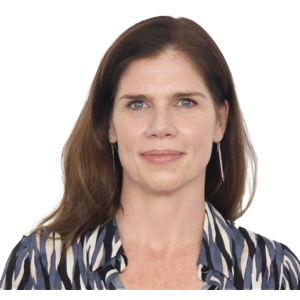
Eileen Morrow supports the Humanitarian Coordination team, with a strong focus on COVID-19 vaccination. Prior to this she was funded by ICVA as the Ethiopia Humanitarian INGO Forum Director. She has worked as Country Director for Concern Worldwide in Ethiopia and Nepal and has a wealth of experience leading and coordinating humanitarian response with NGO and INGO partners in contexts as diverse as Kenya, India, Uganda, Tanzania and Haiti.
She holds a masters in Humanitarian Assistance (NOHA) from the Rijksuniversiteit Groningen, and a bachelor of arts in Psychology from University College Dublin. She is based in Dublin, Ireland.
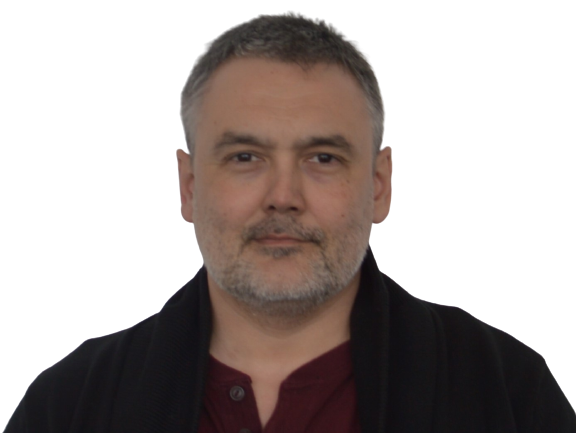
Albert-Philip joined humanitarian action in 2005, during the Darfur crisis. Since then, he has deployed for various NGOs on a number of humanitarian crises, including South Sudan, Chad and Pakistan, but has also worked on development in contexts such as DPR Korea and post-Ebola Sierra Leone, and on mine action in Guinea. He was a country director for over 10 years, and the coordinator for the INGO forum in Mali in 2020.
He was ICVA West and Central Africa Representative in 2021, before joining the Humanitarian Coordination department in 2022.
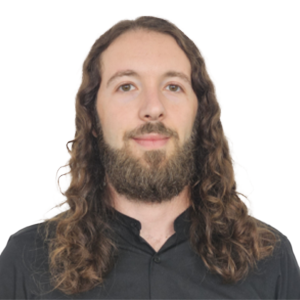
Alon is Senior Policy Officer for PSEAH and Diversity, overseeing ICVA’s work on safeguarding, gender, considerations of age, and inclusion of persons with disabilities . He has been leading the network’s work on safeguarding since 2018 and sits in forums such as the IASC PSEAH Technical Advisory Group, The IASC Field Support Team, the CSSG and the Safeguarding Resource and Support Hub Executive Steering Committee. Alon established and manages the PSEA Community Outreach and Communication Fund in partnership with UNHCR. He previously covered for ICVA the subject of humanitarian financing and partnerships, including topics such as donor conditions, risk and innovative funding mechanisms.
Prior to ICVA, Alon worked on human rights, gender and peacebuilding and holds a master’s degree in International Affairs from the Graduate Institute in Geneva (IHEID).
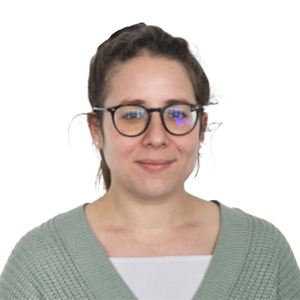
Prior to ICVA, Vania worked with OHCHR, supporting the Secretariat of the Human Rights Council. Vania holds a bachelor’s degree in political science from Università LUMSA, Rome, and a master in Middle Eastern Studies from University of Geneva.
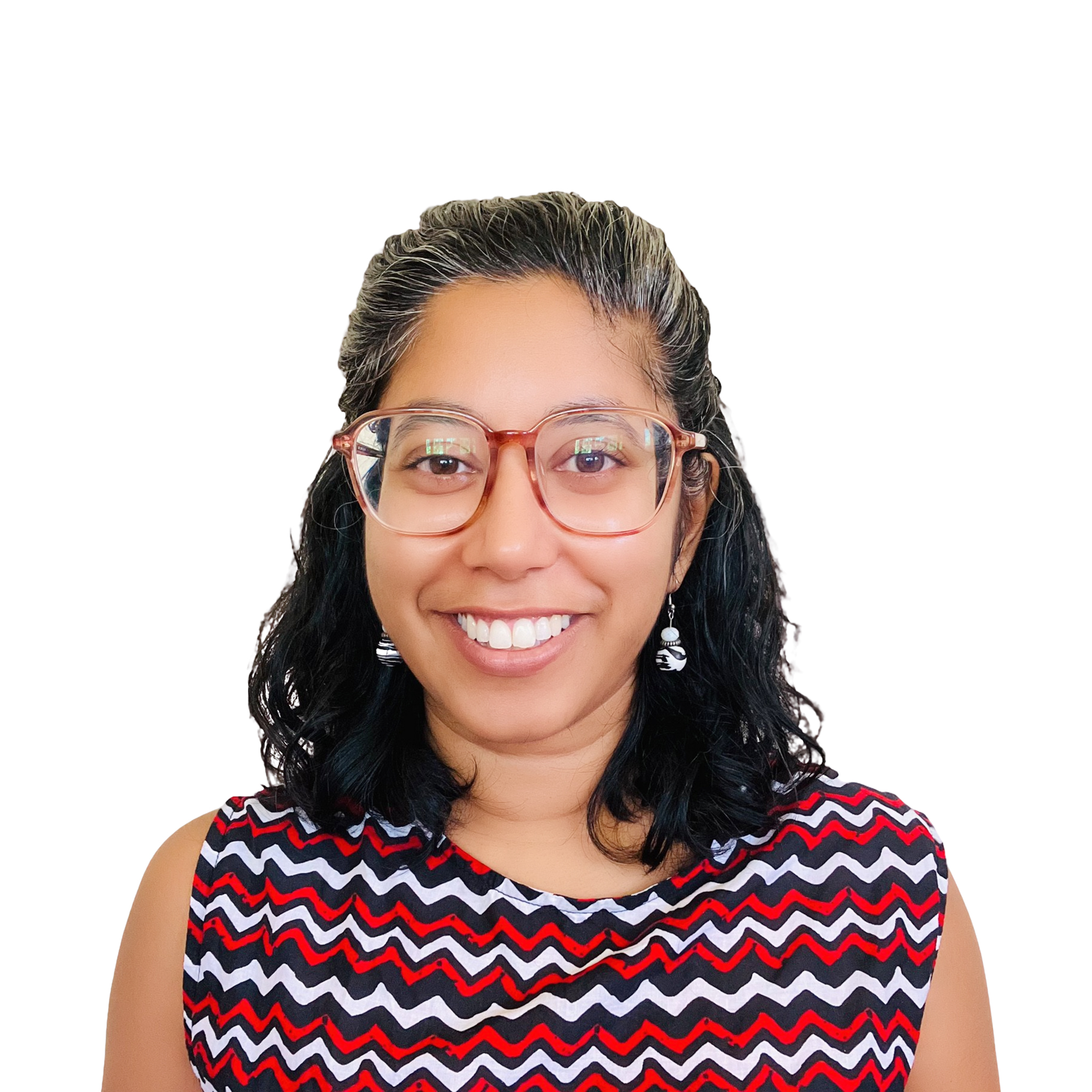
Keya joined ICVA in 2020 and hopes to translate her experiences working in gender and health across the development and humanitarian space into an asset for the work of ICVA in the region.
She has over 12 years of experience working with local and international NGOs in the Asia Pacific Region including the Red Cross and International Planned Parenthood Federation (IPPF). She has worked with a diverse country portfolio, including Myanmar, China, Indonesia, Afghanistan, Nepal, Philippines and PNG. Her work has focused on strengthening engagement of local NGOs in the humanitarian system, emergency preparedness and partnership development.
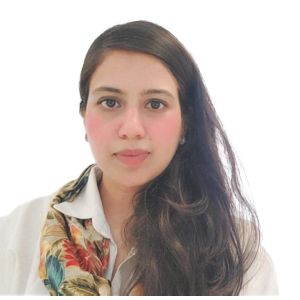
Asma has over 10 years of experience working with the government, NGOs, and private sectors on organizational development, partnerships, and community development. In her role as Deputy Regional Representative for the Asia Pacific, Asma provides support in setting the direction of ICVA’s work within the region and strengthening meaningful participation and linkages of regional and local actors in humanitarian coordination, preparedness, climate action, and partnership development.
She holds M.Phil. degree in International Relations and a bachelor’s degree in Behavioral Sciences.
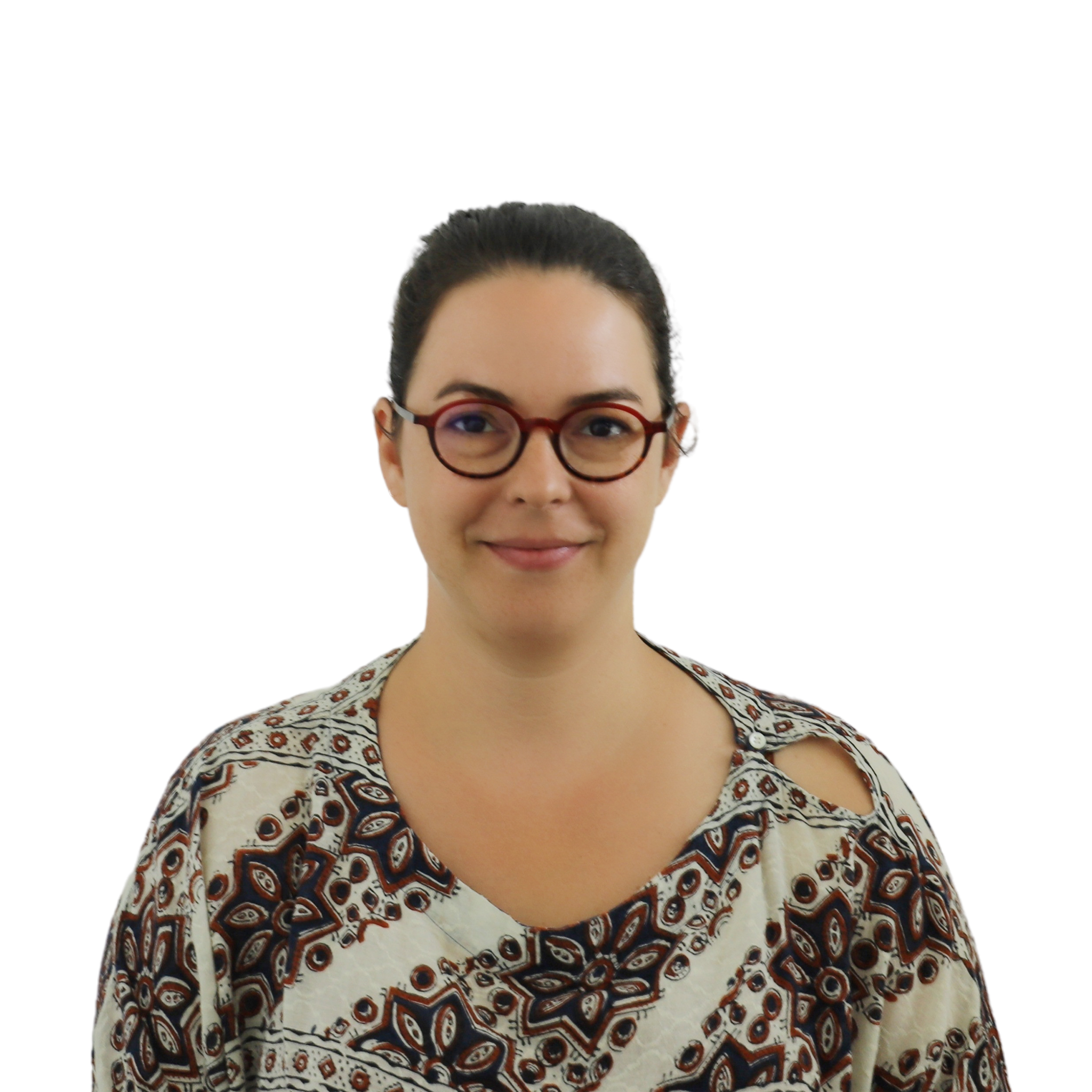
Adeline has worked for over 5 years in the Sahel region, first as INSO’ director in Mali, Burkina Faso and opening Niger, and then with the INGO forum in Mali. Before that, she worked around project and mission management in the positions of project manager and technical reference. Further, she has also held coordinator to country director positions in different countries (DRC, CAR, Haïti, Lebanon), sectors and INGOs.
She joined ICVA in 2022 as a Representative for West and Central Africa, based in Dakar. She holds a master’s degree in Social and Humanitarian Projects Management.


Addis represents ICVA in East and Southern Africa.

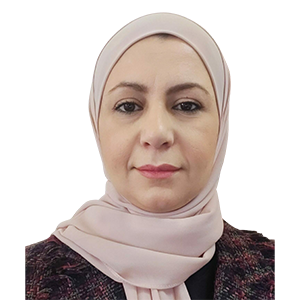
Since 2019, Eman has been representing ICVA in MENA and is the focal point on localization.
With over 15 years of experience as an emergency and development professional leader working in the humanitarian sector, private and government sectors Eman has an extensive knowledge on localization, emergency and refugee response, community mobilization, NGO capacity building and Nexus. She is a certified trainer on PSEA and Leadership in Humanitarian and Fragile context.
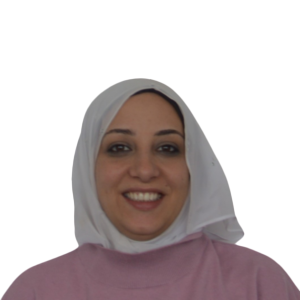
Stephanie has 10 years of experience working with local and international NGOs in the MENA region on different advocacy initiatives and research.
Before joining ICVA in 2020, Stephanie worked as the Country Program Manager for HelpAge International in Jordan, with a focus on policies and strategies related to ageing and disability. She has also worked in the United States House of Representatives as Immigration and International Affairs Specialist. Stephanie has experience on promoting inclusion and localization agendas. She also has experience in conducting trainings on inclusive approaches to humanitarian and development interventions
She has a degree in International Relations focused on the Middle East, and a masters in Public Administration, both from universities in the US.
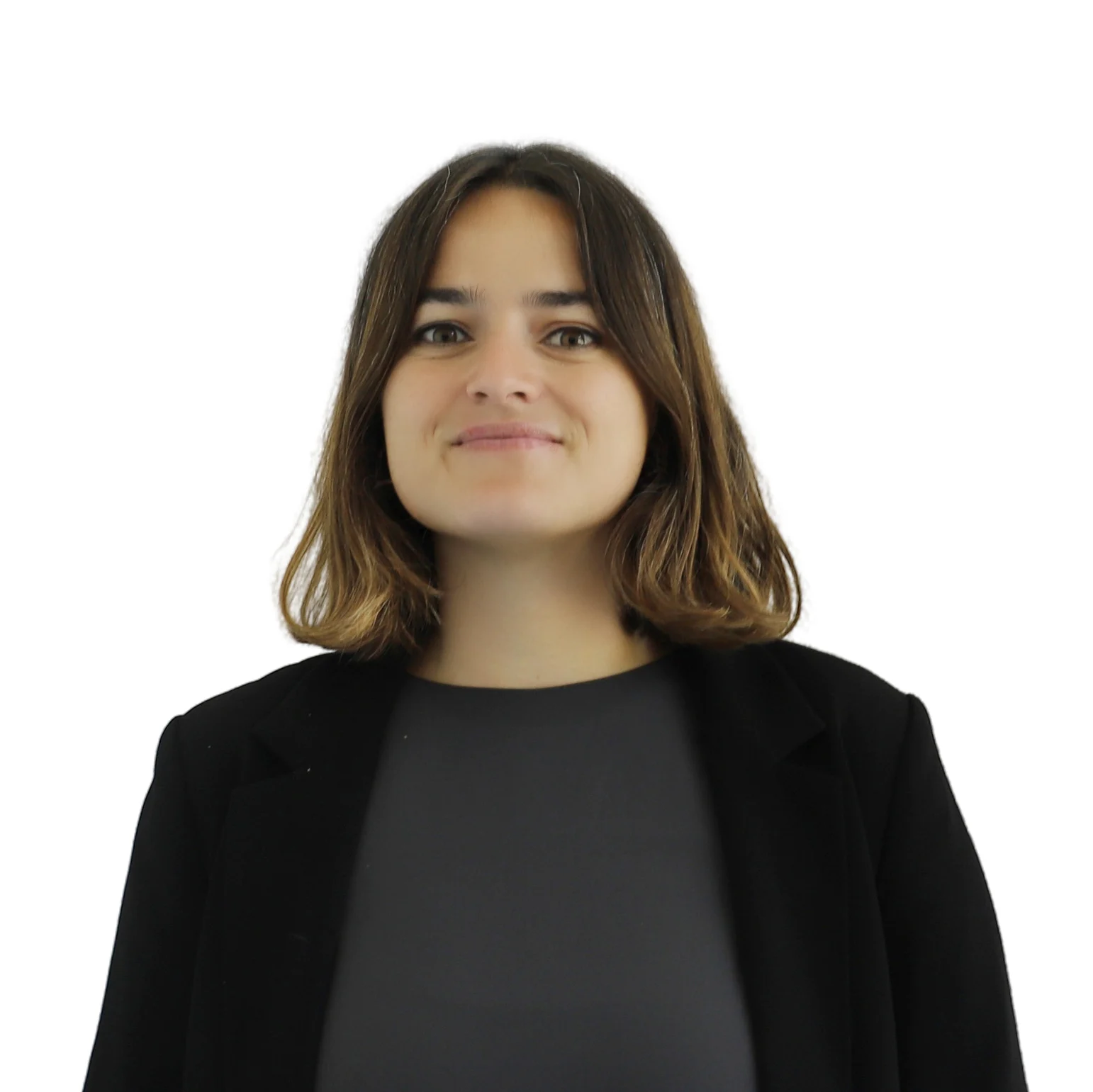
Lina has a B.A in International Studies and a Master’s degree in Gender Studies. She worked on the “Mexican Migration Project” coordinated by PhD Jorge Durand and PhD Douglas Massey. She is currently a professor at the University of Guadalajara in the Department of International Studies where she teaches international migration and gender studies. She is part of the advisory group of UN Women in the Safe Cities program in Guadalajara. She also collaborates at the Inmujeres Guadalajara Advisory Council.
She works for Dignidad y Justicia en el Camino A.C. a local NGO member of ICVA located in Guadalajara where she serves as coordinator of the political and social advocacy area and as a focal point for the Americas.
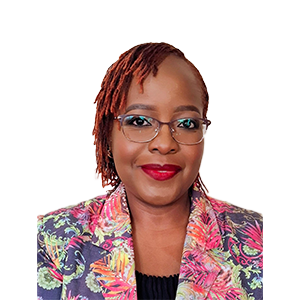
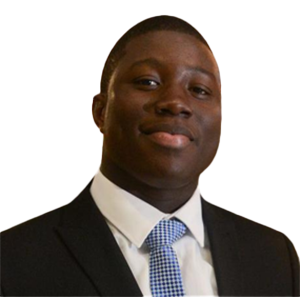
Nana brings nine years of experience in finance, grant management, audit, and security. His hands-on leadership, strong business acumen, and analytical skills make him highly adept at addressing underperforming trends from different perspectives.
Nana joined ICVA in 2023 as the Cost and Management Accountant. He is fluent in English, French, and Mandarin Chinese.
Currently, Nana is a doctoral researcher at Geneva Business School. He holds an MSc. in Management and International Business from Nottingham Trent University and a BSc. in Accounting from the University of Ghana. In his free time, he enjoys trying out new sports.


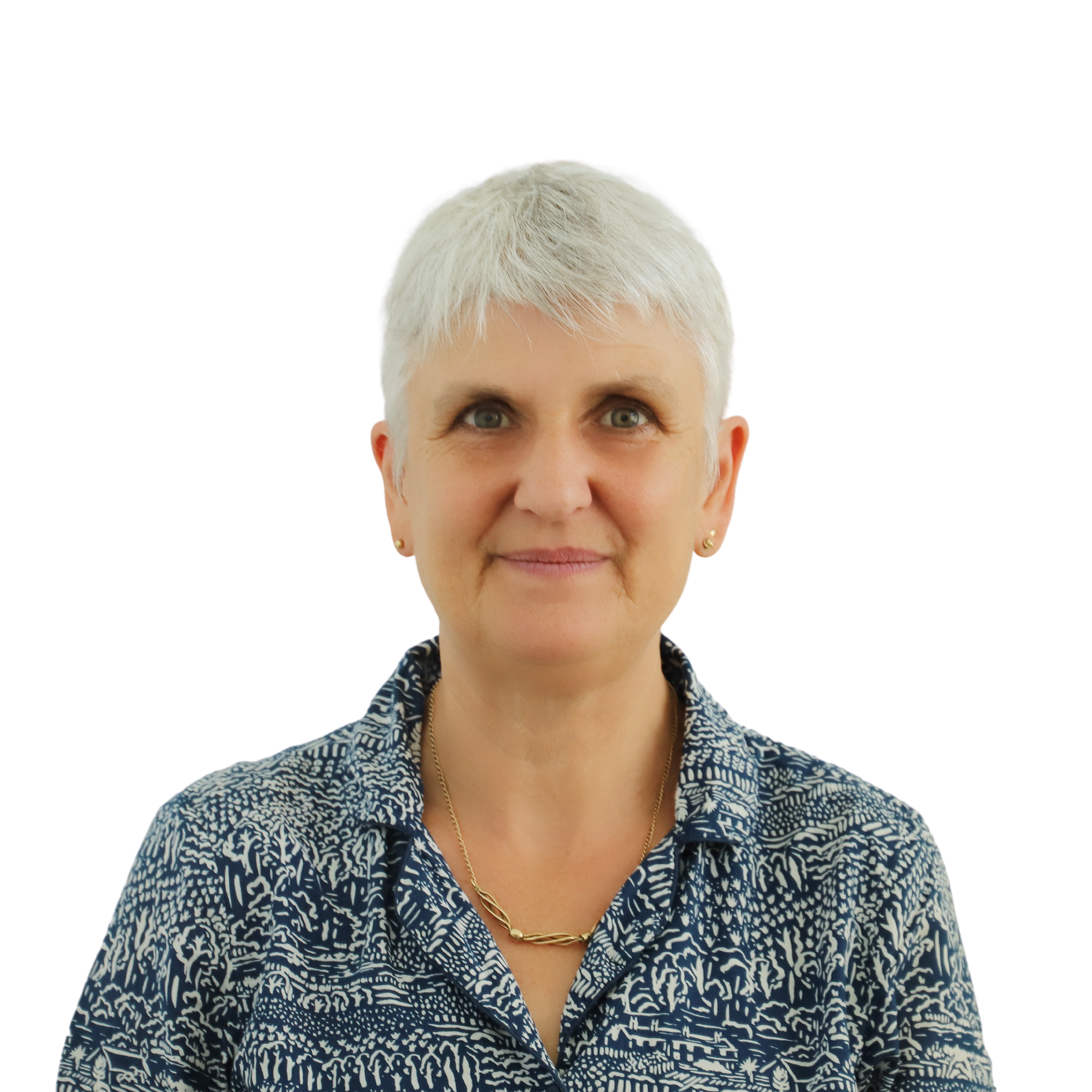
Fiona brings over 30 years of invaluable experience in membership NGOs, dedicated to fostering a more equitable, fairer and sustainable future.
She joined ICVA in 2014, Fiona has leveraged her expertise in membership management, communications and governance support. Her prior role at the World YWCA provided her with a solid foundation for her work at ICVA. Before transitioning to the NGO sector, Fiona gained experience in the private sector.
Originally from Scotland, she has an educational background in Social Psychology and Social Anthropology, complemented by a Master’s in Business Administration.
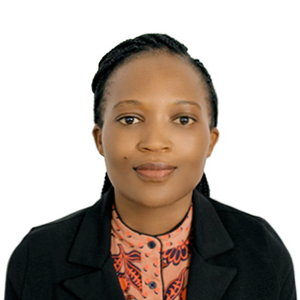
Edith joined ICVA in 2021 where she supports the communication processes, tools and capacities for the implementation of ICVA’s Strategy. Prior to this, she worked with Transparency and Accountability Initiative in Washington DC, as well as various local and international NGOs, focusing on strategic communication, digital communication, graphics design and stakeholders engagement.
Edith holds a degree in Linguistics and Media, along with a masters in Communication from the University of Colorado Denver.
The International Council of Voluntary Agencies (ICVA) was established in 1962 as the successor organisation of the Conference on Non-Governmental Organizations interested in Migration, the Standing Conference for Voluntary Agencies Working for Refugees, and the International Committee for World Refugee Year. The goal was to build cooperation in refugee matters and extend this out to other areas.
ICVA commemorated its 60th anniversary on Wednesday, 18 May 2022 with an online event.
Transformations from past, present to future: NGO perspectives
Agenda:
Watch the recording of the event.
To mark the 60th Anniversary ICVA published a decade-by-decade snapshot of ICVA’s first 60 years. It tells the story of its birth, evolution and maturity as an international mechanism for NGO humanitarian cooperation, highlighting changing areas of focus, core activities and major achievements.
Read the online version or download the pdf.
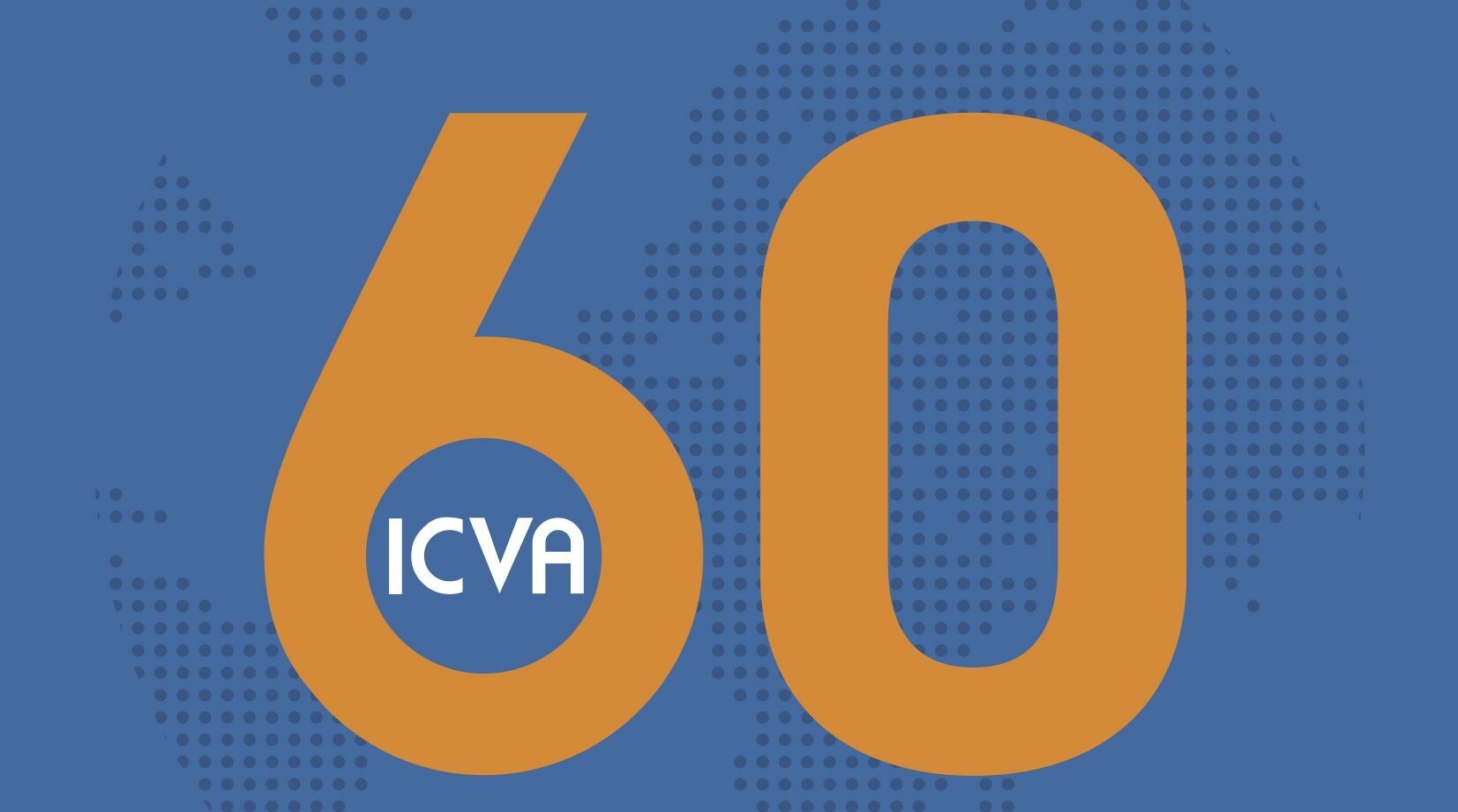
This review provides a decade-by-decade snapshot of ICVA’s first 60 years. It tells the story of its birth, evolution and maturity as an international mechanism for NGO humanitarian cooperation, highlighting changing areas of focus, core activities and major achievements.
There are two versions – a downloadable pdf, and an interactive online version.
In the preparation of the ICVA at 60 document the consultant for the project conducted a series of interviews with Board and staff of ICVA, former and present. These conversations are available to listen to as podcasts.
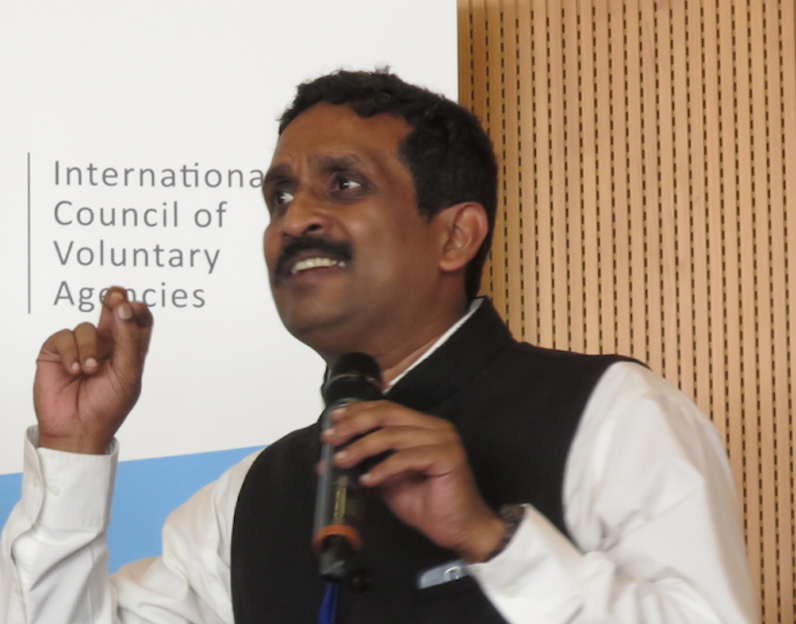
This conversation between Anoop Sukumaran and Robert White was recorded in July 2021 and is part of a collection of interviews with leaders of ICVA in the build-up to ICVA’s 60th anniversary in 2022.
Anoop Sukurman was elected Chair of ICVA in 2018.
Anoop talks about how ICVA has become a more inclusive organisation, the added value of the ICVA regional hubs, and the role of members in strengthening ICVA as a network.
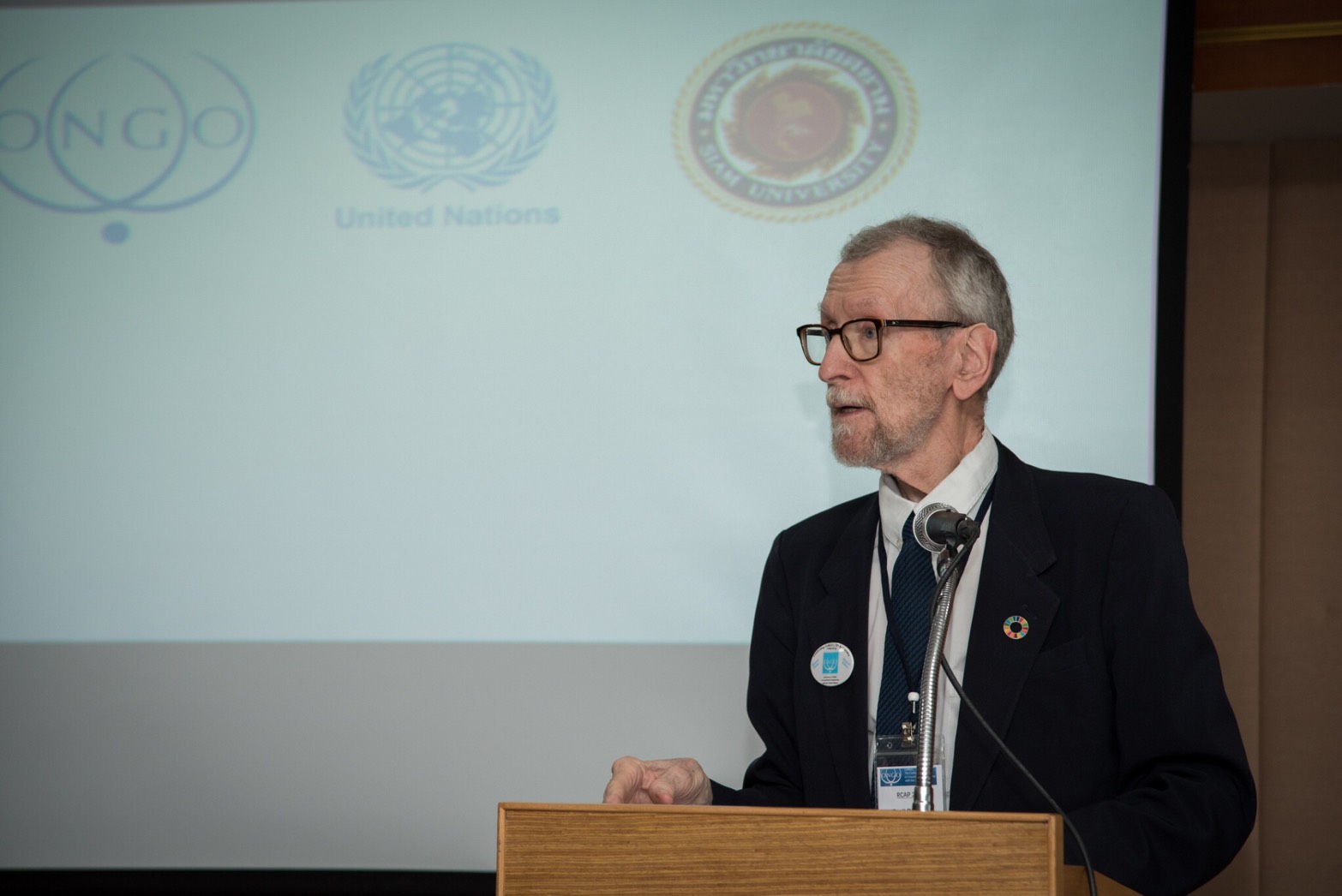
This conversation between Cyril Ritchie and Robert White was recorded in September 2021 and is part of a collection of interviews with leaders of ICVA in the build-up to ICVA’s 60th anniversary in 2022.
Cyril Ritchie was director of ICVA from 1964-1978, and again from 1990-1991.
Cyril talks about the importance of working together, how ICVA set the tone for cooperation, and how a network is only as strong as its members.
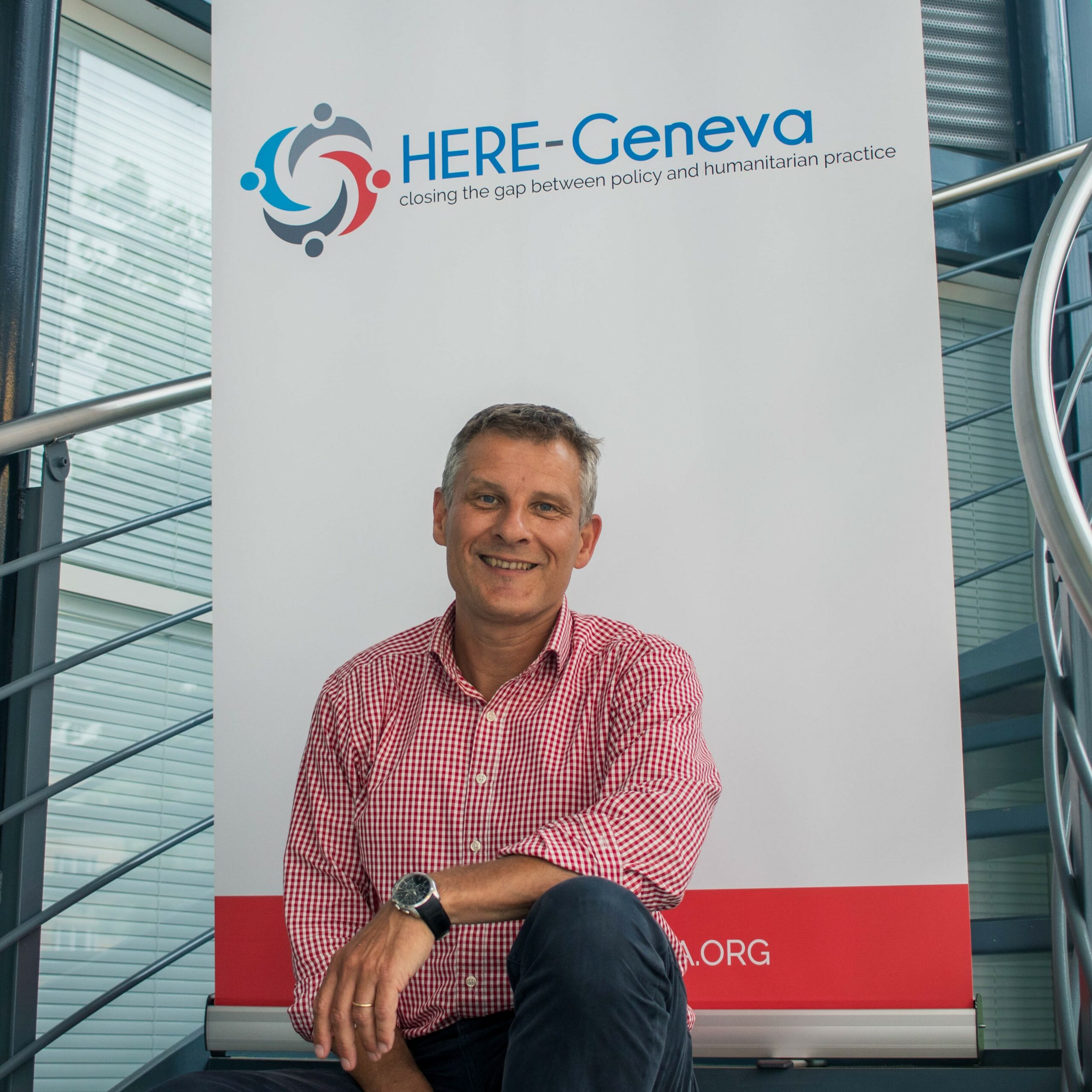
This conversation between Ed Shenkenburg and Robert White was recorded in July 2021 and is part of a collection of interviews with leaders of ICVA in the build-up to ICVA’s 60th anniversary in 2022.
Ed Shenkenberg was director of ICVA from 1997-2012.
Ed talks about ICVA’s financial crisis in the late 90’s, ICVA’s humanitarian focus, interviewing the candidates for the UNHCR High Commissioner for Refugees, and the importance of collaboration.
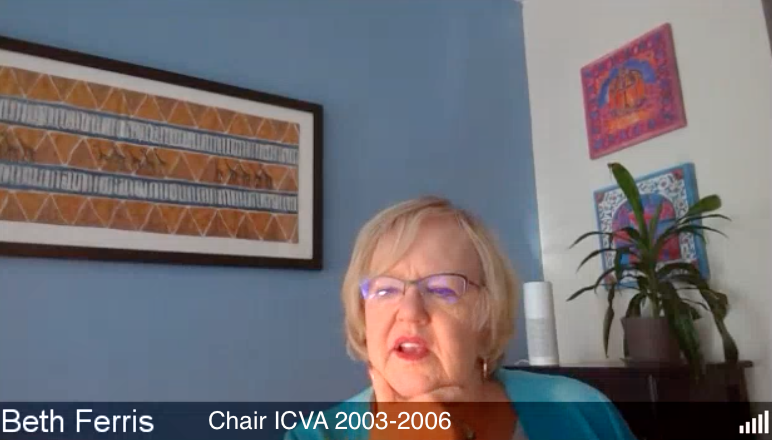
This conversation between Elizabeth Ferris and Robert White was recorded in July 2021 and is part of a collection of interviews with leaders of ICVA in the build-up to ICVA’s 60th anniversary in 2022.
Elizabeth served on the ICVA Board as vice chair from 1993-2003 and then as Chair 2003-2006.
Elizabeth talks about ICVA’s presence in Latin America in 1980’s, the humanitarian development divide, and the need for ICVA to be more outspoken.
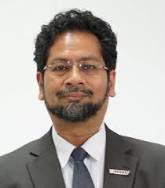
This conversation between Faizal Perdaus and Robert White was recorded in July 2021 and is part of a collection of interviews with leaders of ICVA in the build-up to ICVA’s 60th anniversary in 2022. Faizal was the Chair of ICVA from 2015-2018.
Faizal talks about being the first ICVA chair from the global south, the challenges of localisation, and the importance of humanitarian sector to have a focus on the impacts of climate change.

This conversation between James Munn and Robert White was recorded in July 2021 and is part of a collection of interviews with leaders of ICVA in the build-up to ICVA’s 60th anniversary in 2022. James Munn was an ICVA staff member from 2012-2015 and then served on the ICVA Board from 2019-2021.
Jamie talks about the operational realities of NGOs blurring the lines between humanitarian and development, ICVA’s instrumental role as interlocutor between the International humanitarian system and national agencies, and challenges ICVA to be more courageous and outspoken in their advocacy.
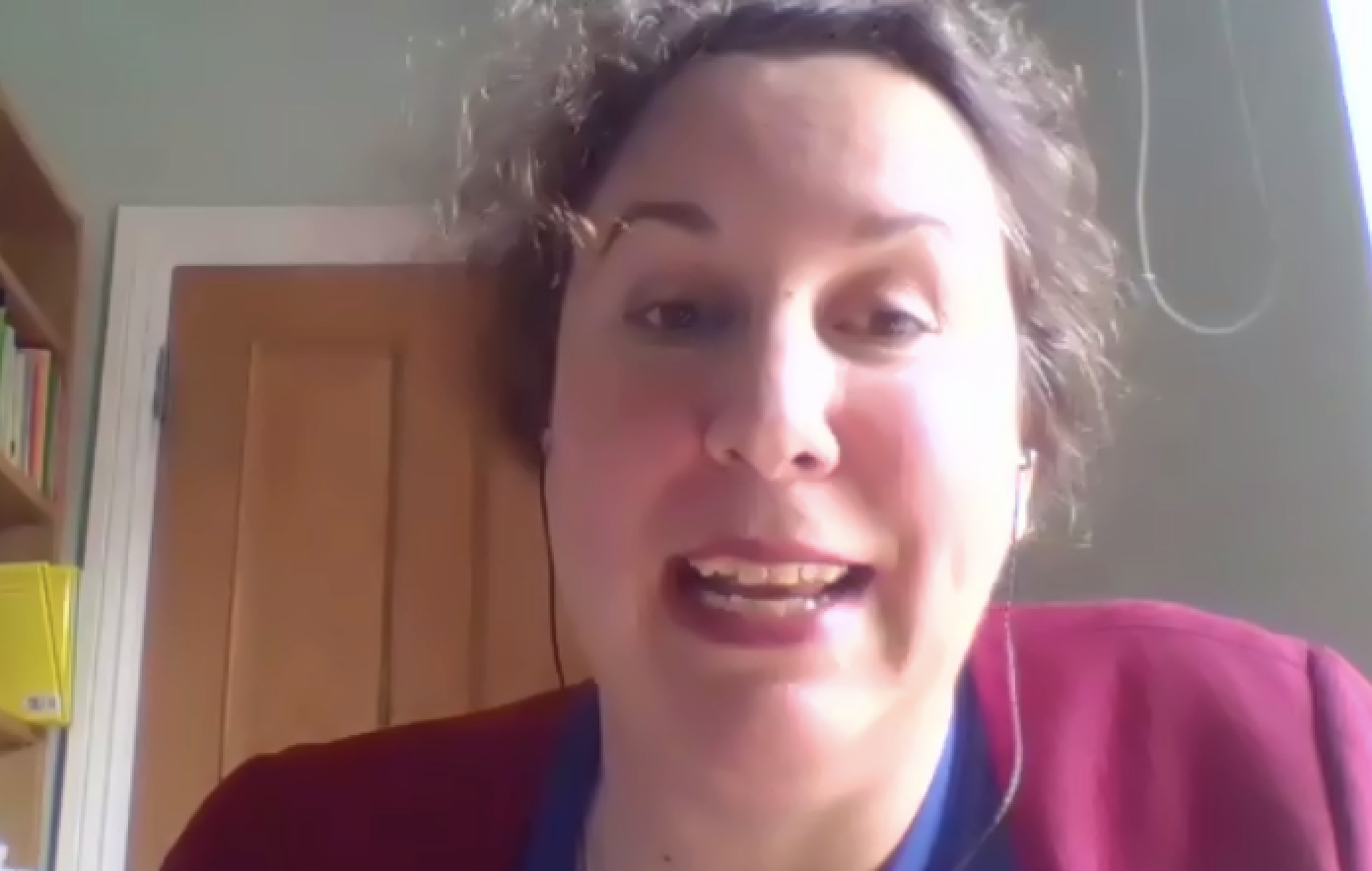
This conversation between Jane Backhurstand Robert White was recorded in July 2021 and is part of a collection of interviews with leaders of ICVA in the build-up to ICVA’s 60th anniversary in 2022. Jane Backhurst, who was elected Chair of ICVA at the 18th General Assembly in May 2021, and represents Christian Aid.
Jane talks about the localisation agenda, the importance of including leaders in the frontline of humanitarian crises, and ICVA’s response to the Covid 19 pandemic,
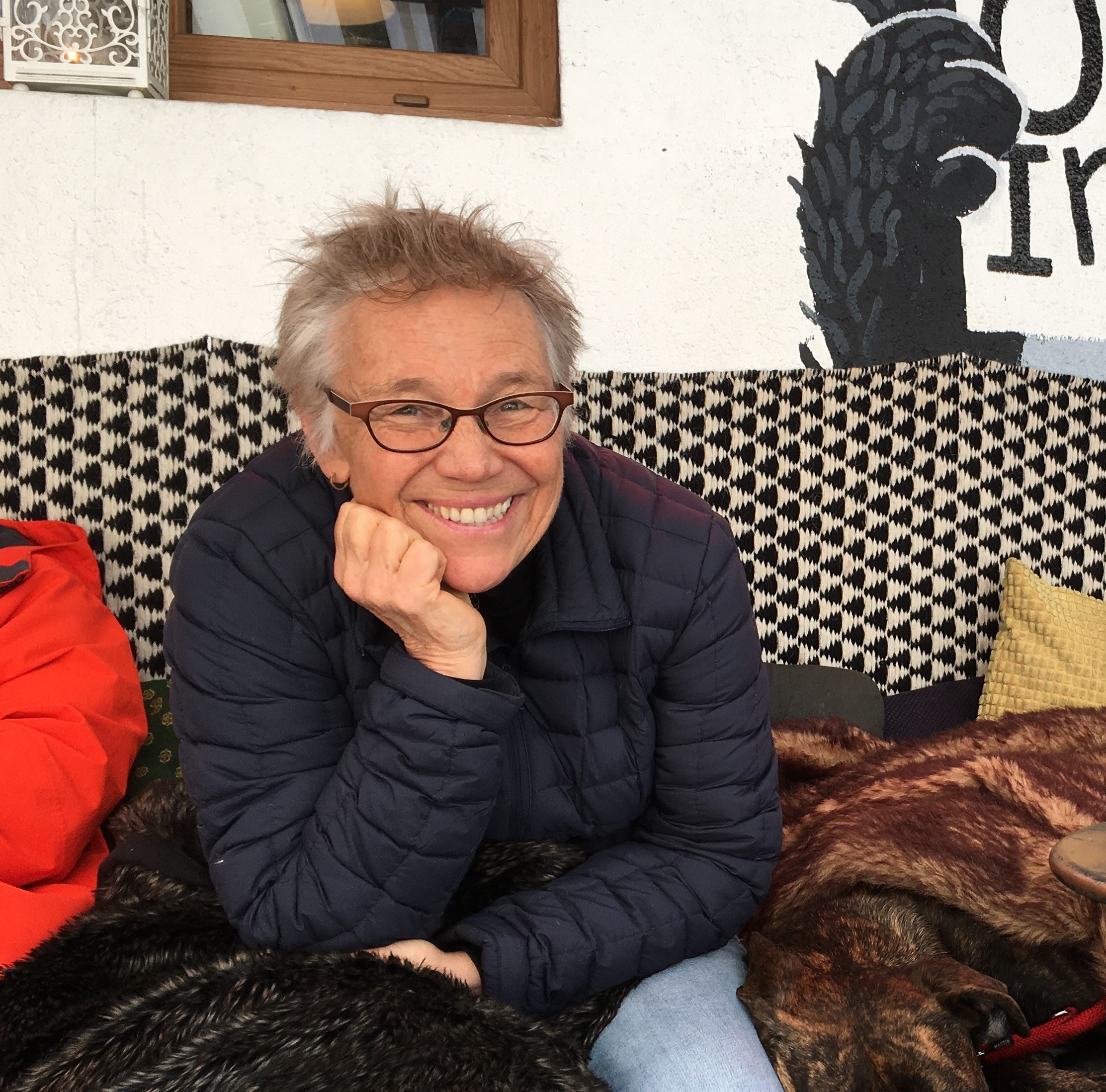
This conversation between Nan Buzzard and Robert White was recorded in July 2021 and is part of a collection of interviews with leaders of ICVA in the build-up to ICVA’s 60th anniversary in 2022.
Nan Buzzard was Executive Director of ICVA from 2013-2017.
Nan talks about how ICVA is an early adopter of issues, and how the issues of localisation and climate change will define the future.
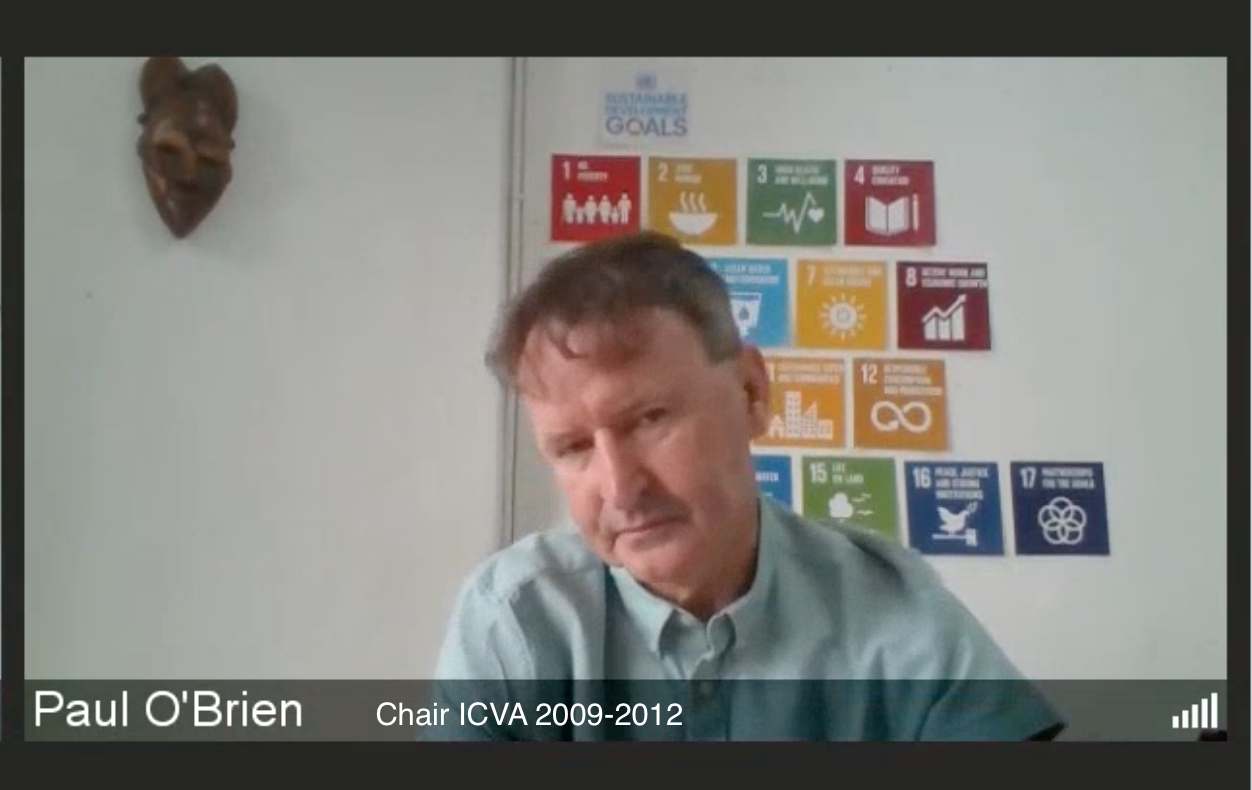
This conversation between Paul O’Brien and Robert White was recorded in July 2021 and is part of a collection of interviews with leaders of ICVA in the build-up to ICVA’s 60th anniversary in 2022. Paul was on the ICVA Board from 2006, and served as Chair from 2009-2012.
Paul talks about the need and challenge of involving local NGOs, how ICVA has been a catalyst for change, and that the need for coordination is even greater as with increasing humanitarian needs and complexity.
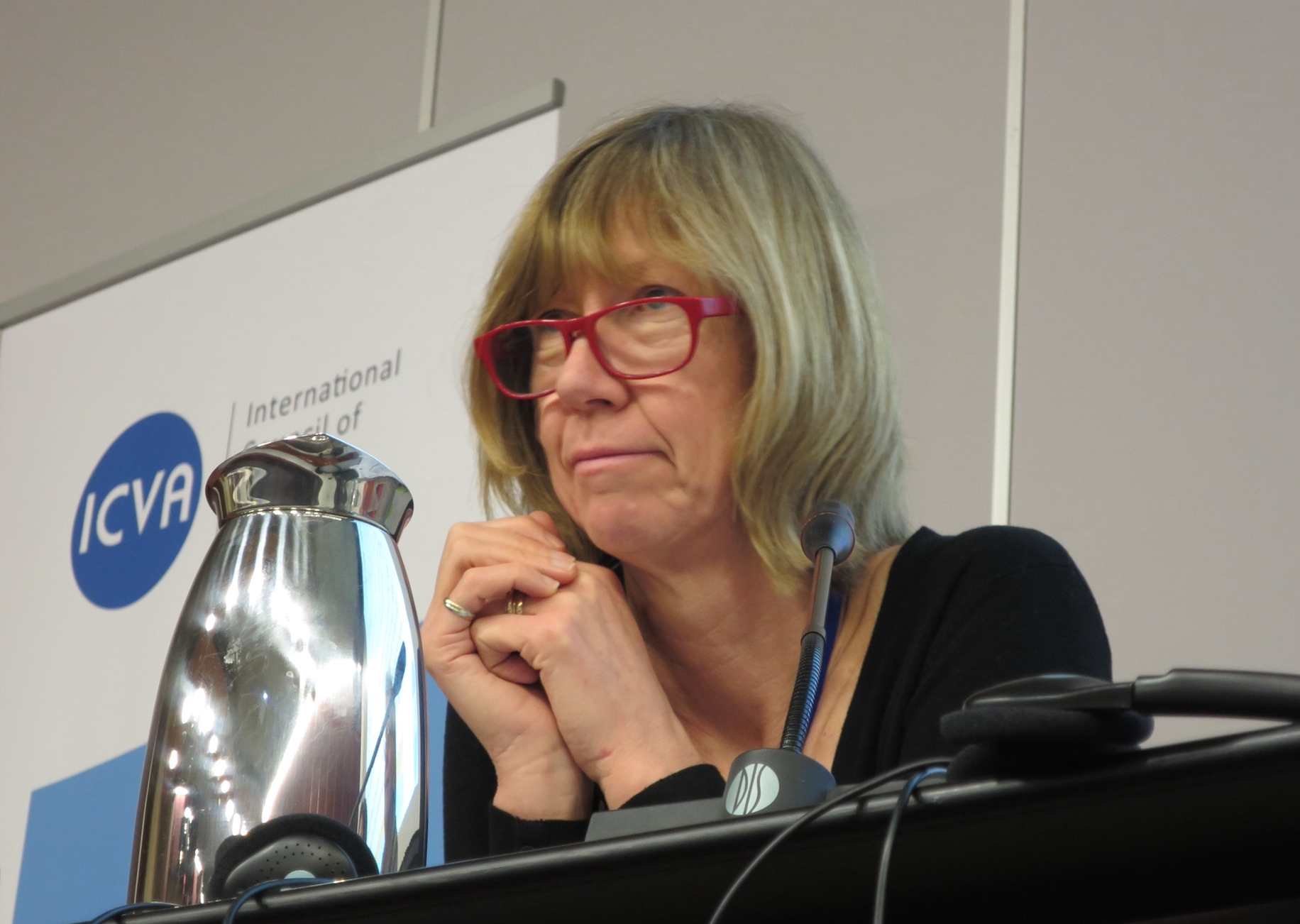
This conversation between Penny Lawrence and Robert White was recorded in July 2021 and is part of a collection of interviews with leaders of ICVA in the build-up to ICVA’s 60th anniversary in 2022.
Penny Lawrence was Chair of ICVA from 2012-2015.
Penny talks about setting up the ICVA regional hubs in Africa, Asia and the MENA region, and the shifting of power to members of the global south. She also talks about what inspired her during her time at ICVA.
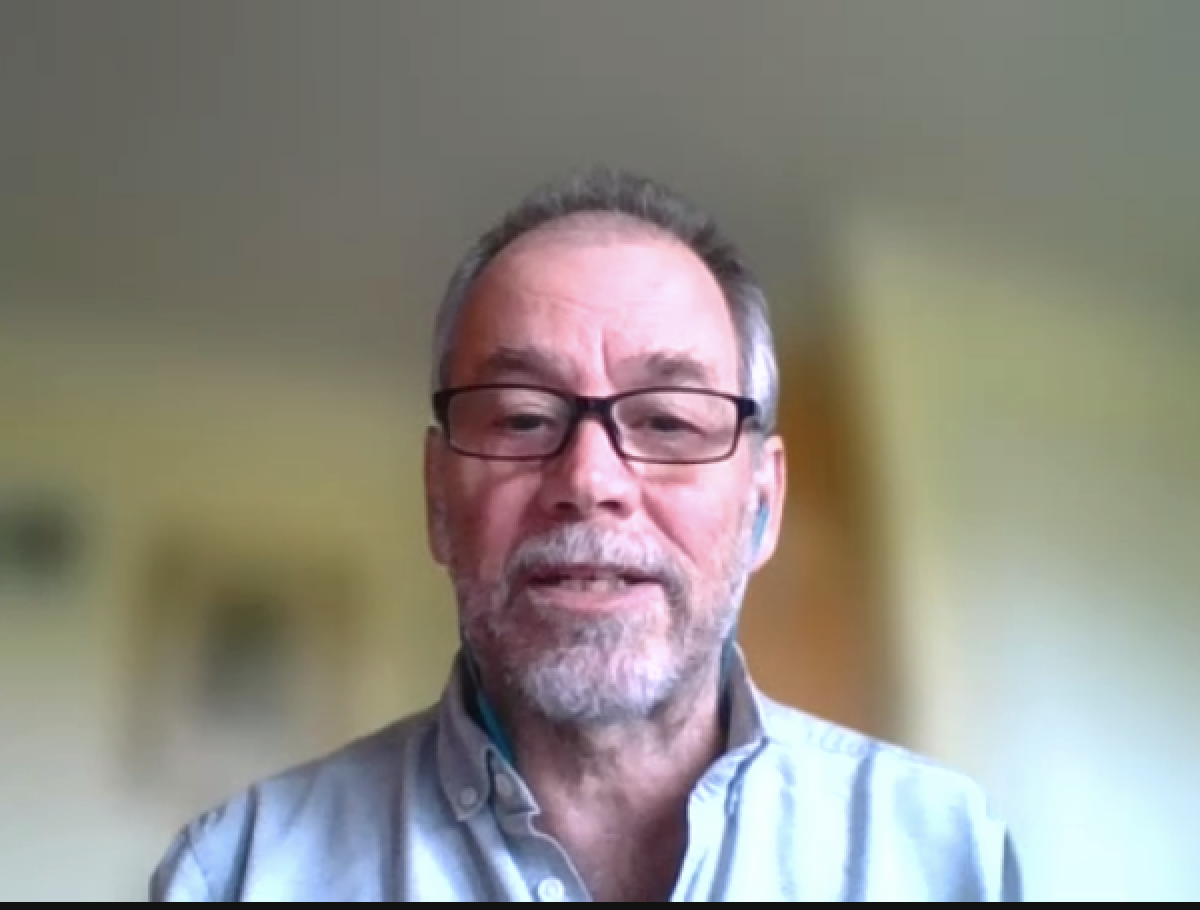
This conversation between Roger Yates and Robert White was recorded in July 2021 and is part of a collection of interviews with leaders of ICVA in the build-up to ICVA’s 60th anniversary in 2022. Roger was on the ICVA Board from 2012 to 2021 and was Chair of ICVA for the final two years.
Roger talks about the benefit of ICVA to the sector as a whole, the importance of collaboration, and how ICVA’s role at the World Humanitarian Summit helped people understand and engage with the sector and took their engagement to another level.
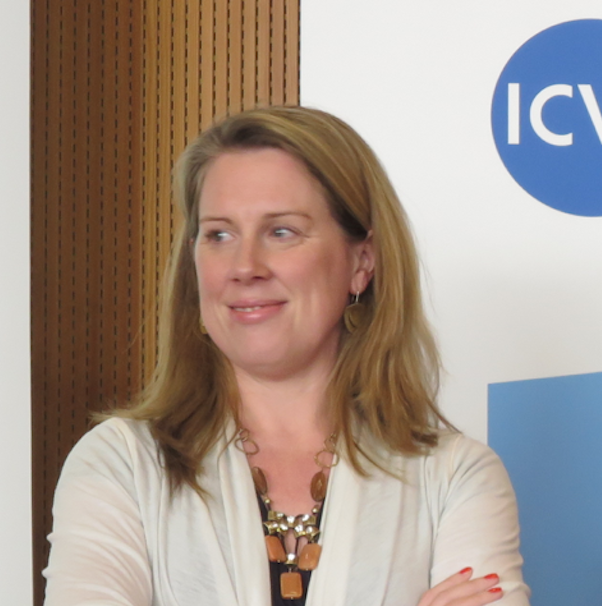
This conversation between Tanya Wood and Robert White was recorded in July 2021 and is part of a collection of interviews with leaders of ICVA in the build-up to ICVA’s 60th anniversary in 2022.
Tanya Wood was part of the ICVA staff from 2011-2014.
Tanya talks about the challenges of establishing the regional hubs, and questions the focus of ICVA.
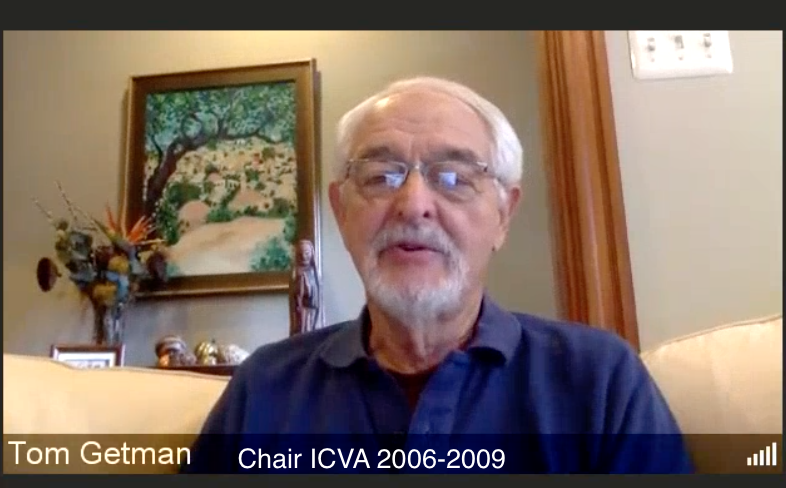
This conversation between Tom Getman and Robert White was recorded in July 2021 and is part of a collection of interviews with leaders of ICVA in the build-up to ICVA’s 60th anniversary in 2022.
Tom Getman was Chair of ICVA from 2006-2009.
Tom talks about his time as Chair of ICVA, about the practice and power of partnership, and the role of ICVA in the selection of the High Commissioner for UNHCR
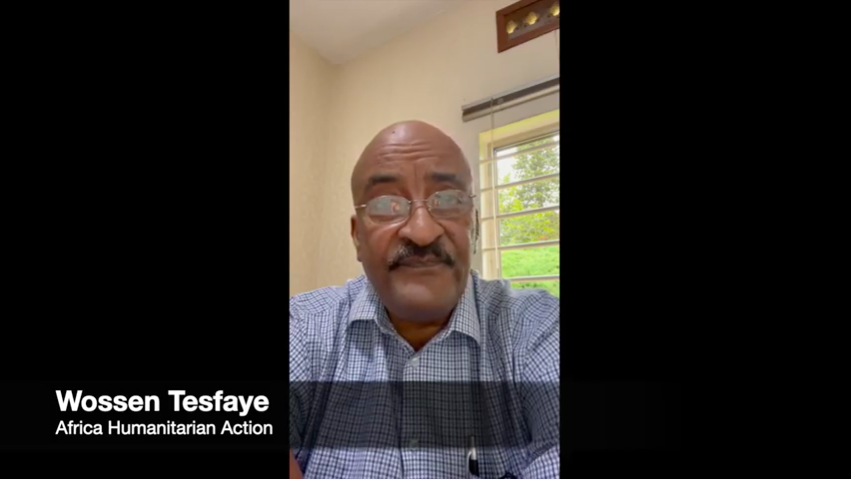
This conversation between Wossen Tesfaye and Robert White was recorded in July 2021 and is part of a collection of interviews with leaders of ICVA in the build-up to ICVA’s 60th anniversary in 2022.
Wossen Tesfaye has been an ICVA Board member since 2018, representing African Humanitarian Action.
Wossen talks about the benefits for an African NGO to be part of ICVA, the added value of the regional hubs, and the increasing relevance of organisations like ICVA to help find global solutions to problems that are local in nature.
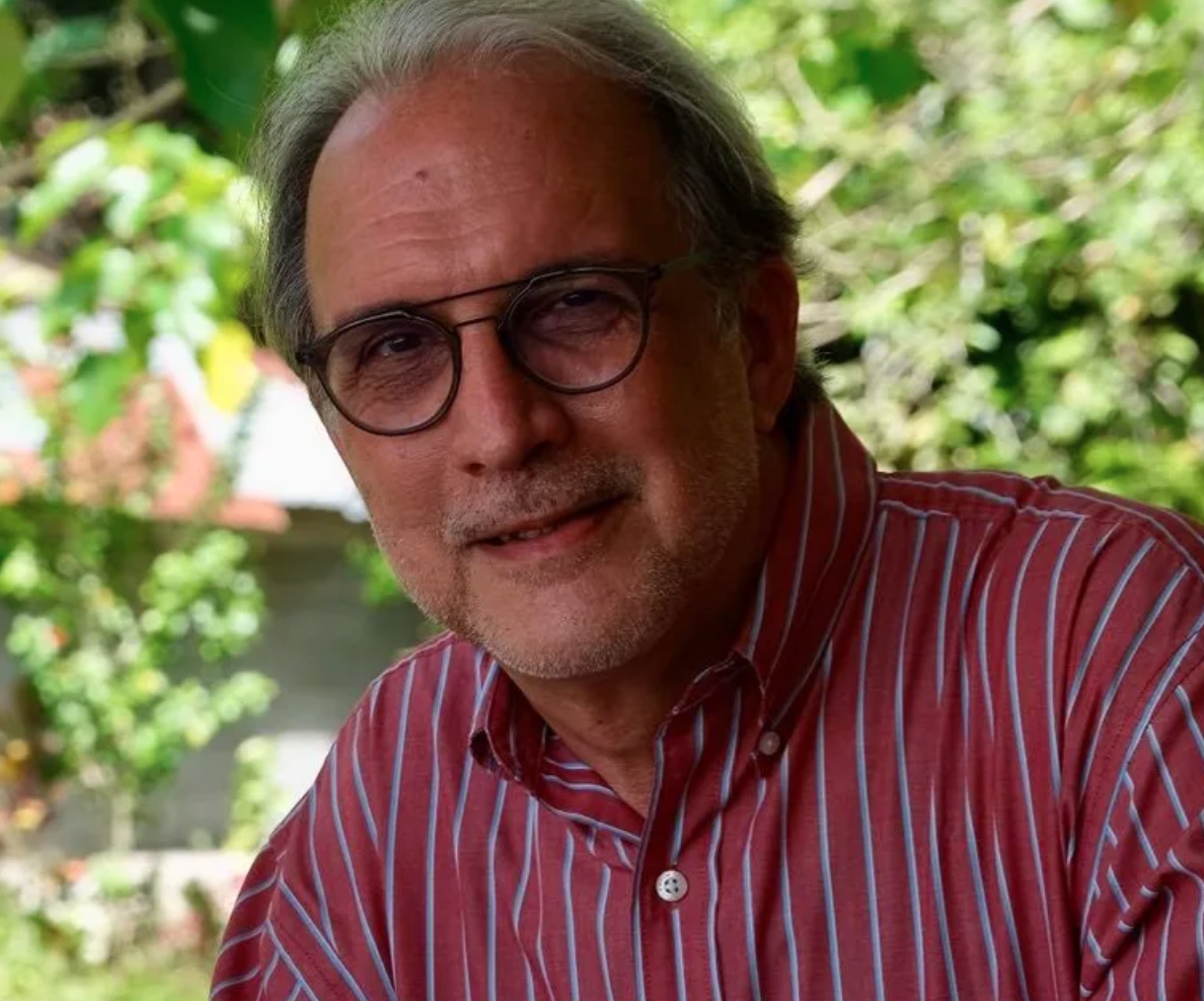
This conversation between Steven Muncy and Robert White was recorded in July 2021 and is part of a collection of interviews with leaders of ICVA in the build-up to ICVA’s 60th anniversary in 2022.
There are three older histories of ICVA.
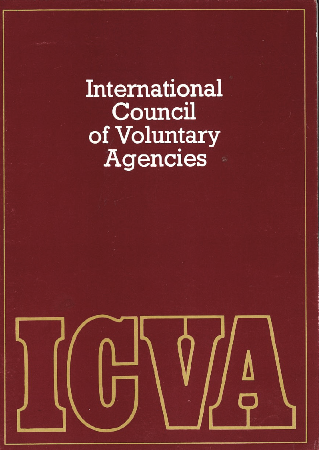
A brief history on the beginning of the International Council of Voluntary Agencies (ICVA). This document was published in 1977.
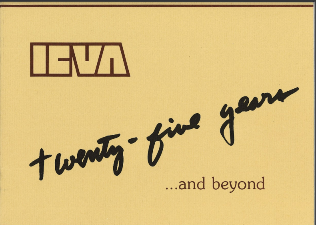
In 1987 we commemorated our 25th anniversary. This was a testimony of our growth in membership and our work around addressing key issues of concern to NGOs involved in humanitarian assistance and development cooperation.
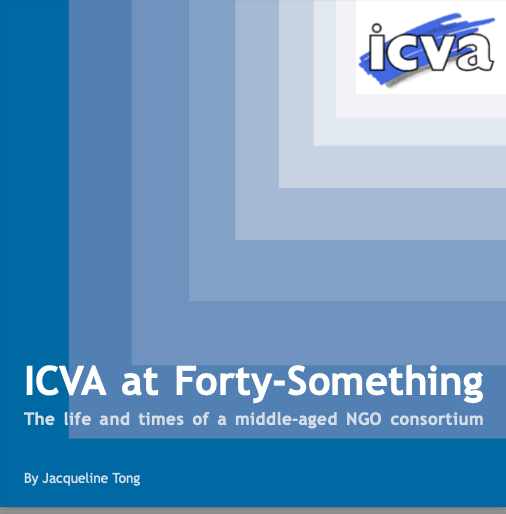
Reaching middle age prompts many to start reflecting on their past. The same has been true with ICVA as it moved well into its forties. Over the years, ICVA, like any organisation, has kept track of its history, growth, and development. Two short histories of ICVA were previously written – the latest one being when ICVA turned 25. We felt that, more than 20 years later, it was time to produce a more comprehensive narrative of the story of ICVA.

Founded in 1962, ICVA (International Council of Voluntary Agencies) is a global network of over 160 non-governmental organizations (NGOs) active in 160 countries, operating at global, regional, national and local levels. Our mission is to make humanitarian action more principled and effective by working collectively and independently to influence policy and practice.
ICVA vacancies are also advertised on Twitter and LinkedIn. Follow us there and be the first to know.
ICVA’s selection process includes rigorous background checks and reflects our organizational integrity and commitment to make humanitarian action more principled and effective.
Opportunities:
1. Forced Displacement Officer
This position supports the alignment of the Forced Migration focus area with the priorities of the network to promote the provision of assistance, protection, and durable solutions for forcibly displaced and stateless people.
Application deadline : 5 August 2024
2. Chargé de Projet Localisation – ICVA Afrique de l’Ouest et Centrale (AOC)
Le rôle du Chargé de projets Localisation pour le bureau WCA est de soutenir le développement du positionnement et de gérer les projets, initiatives et approches d’ICVA en lien avec la localisation dans la région.
La date limite de dépôt des candidatures est fixée au 26 juillet 2024.
Please click the links below to view the complete job details.

ICVA is a global network of non-governmental organisations whose mission is to make humanitarian action more principled and effective by working collectively and independently to influence policy and practice.
International Council of Voluntary Agencies
NGO Humanitarian Hub,
La Voie-Creuse 16, 1202, Geneva, Switzerland
Email: secretariat@icvanetwork.org
A curation of monthly updates, latest news, tools, and events around forced migration, coordination, financing, and cross cutting issues all sent straight to your inbox.